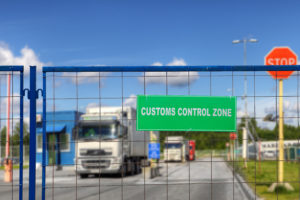A New Kiel Institute Study Shows Protectionist Measures against Global Supply Chains Harm All

The COVID-19 pandemic is a huge challenge for all aspects of human lives – locally, nationally but also globally. With respect to the global economy, the COVIC-19 pandemic has clearly demonstrated how vulnerable global supply chains can be in the face of global shocks. The severe pandemic-determined global supply chain disruptions particularly in the first half year of 2020 has triggered political and public discussions worldwide about whether there is increasing national need for economic self-sufficiency and about the role of potential business reshoring in this regard. There have been also such debates and discussions in Germany. The aim behind the idea of reshoring home and turning the back to global supply chains is to reduce an economy’s, e.g., Germany’s, (over-)dependence on foreign suppliers with the expectation that this may help strengthen the resilience of its economy.
Against this background, a study recently published with contribution from KCG Senior Fellows examines how intensively the German economy is integrated in global supply chains with a focus on the mechanical engineering industry, a key industry in Germany. It also analyses the potential welfare loss in Germany, the EU and the world, if (sector-specific) protectionist measures in support of business reshoring are implemented unilaterally, EU-wide or internationally.
The study prepared by Prof. Gabriel Felbermayr, Ph.D., Prof. Dr. Alexander Sandkamp, Hendrik Mahlkow and Steffen Gans shows that if the EU were to seal itself off from the rest of the world by doubling its trade barriers, this would lead to a production decline of 3.8 percent in Germany as a whole and of 14.3 percent for the mechanical engineering industry in Germany in particular. This would also lead to a permanent welfare loss of 3.3 percent in Germany. Measured in terms of gross domestic product in 2019, this would correspond to a decline of almost 114 billion Euro. If other countries would react to the protectionist measures of the EU with retaliatory measures, the welfare loss in Germany would be even higher (6.9 percent). If the protectionist measures were taken by Germany unilaterally, the estimated welfare loss would reach 9.1 percent compared to the state without such additional trade barriers. Moreover, their analysis also shows that the welfare loss would not be restricted to only Germany but the EU and the rest of the World would also suffer from welfare losses to different degrees.
The authors conclude that although the COVID-19 pandemic has shown how highly vulnerable global supply chains can be, it is a wrong and extremely expensive way to just encourage firms and businesses to bring their production back home. Instead, they argue that it would be more effective to improve the economic resilience (nationally and/or internationally) through, for example, diversifying the supplier portfolio, increasing inventory and improving warehousing management, improving international coordination and cooperation, further lowering trade barriers, improving international transportation infrastructure as well as improving the recycling system.
The abovementioned study (in German) “Felbermayr, G., Sandkamp, A., Mahlkow, H., and Gans, S. (2021), Lieferketten in der Zeit nach Corona (Supply Chains in the Post-Corona Era), IMPULS, Stiftung für den Maschinenbau, den Anlagenbau und die Informationstechnik (VDMA)”is accessible here. The study was commissioned by IMPULS, Foundation of VDMA.
Contact:
Prof. Dr. Alexander Sandkamp (KCG Senior Fellow), alexander.sandkamp@ifw-kiel.de, +49(0)431-8814-225



 KCG Projects
KCG Projects


